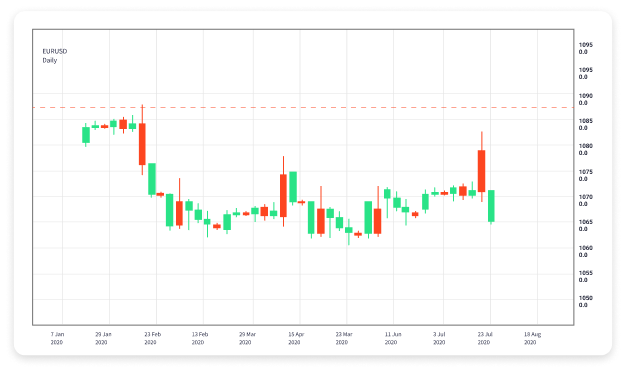
In the rapidly evolving world of financial markets, forex trading has emerged as a popular avenue for investment and income generation. However, for Muslim traders, the principles of Sharia law must be diligently observed. This is where Islamic Forex trading comes into play. It offers a pathway for Muslim individuals to engage in the foreign exchange market while adhering to their religious beliefs. This article delves into the core principles of Islamic Forex trading, how it operates, and its significance in promoting ethical trading practices. For more resources on trading, check out islamic forex trading https://tradingarea-ng.com/.
What is Islamic Forex Trading?
Islamic Forex trading refers to foreign exchange trading that conforms to Islamic law (Sharia). In essence, this type of trading avoids certain practices that are prohibited in Islam, most notably the payment or receipt of interest (Riba). Forex trading involves the buying and selling of currency pairs with the aim of making a profit based on the fluctuations in exchange rates. For a Forex trader to operate within the Islamic framework, specific rules and conditions must be adhered to.
Key Principles of Islamic Forex Trading
No Intervention of Riba (Interest)
The foremost principle that distinguishes Islamic Forex trading is the prohibition of Riba. In conventional trading, interest can be accrued, especially in leveraged trading scenarios. An Islamic Forex account is typically a swap-free account. This means that traders do not incur interest fees for holding positions overnight, making it compliant with Islamic principles.
Ethical Trading Practices
Islamic teachings stress the importance of ethical behavior in all aspects of life, including business and trading. In Islamic Forex trading, this translates to avoiding transactions that involve excessive risk or uncertainty (Gharar). Traders are encouraged to engage in transactions that are clear in nature and in which they fully understand the implications and risks involved.
Asset-Backed Transactions
Islamic finance principles advocate for trade that involves tangible assets. While Forex trading inherently involves currency exchange, Islamic traders focus on ensuring that their trades are based on real economic activity. This helps in avoiding speculative trading practices which are viewed as haram (forbidden) in Islamic finance.
The Structure of Islamic Forex Accounts

To accommodate the needs of Muslim traders, most reputable brokers offer Islamic Forex accounts. These accounts generally have specific features that distinguish them from standard accounts. Here are some characteristics:
Swap-Free Trading
As previously mentioned, the most significant feature is the absence of swap rates. Traders can hold positions overnight without accumulating interest charges. This allows Muslim traders to engage in trading without compromising their religious beliefs.
Compliance with Sharia Law
Brokers that provide Islamic Forex accounts are usually well-versed in Sharia law and ensure that their trading platforms operate in compliance with these principles. This may include offering educational resources regarding Islamic finance and the intricacies of ethical trading.
How to Choose an Islamic Forex Broker
Choosing the right broker for Islamic Forex trading is pivotal for ensuring a successful and compliant trading experience. Here are key factors to consider:
Regulation and Reputation
It is essential to choose a broker that is regulated by a reputable authority. This adds a layer of safety and security to your funds. Additionally, broker reputation plays a significant role. Look for brokers that have positive reviews and a history of transparent trading practices.
Trading Conditions

Evaluate the trading conditions offered by the broker, such as spreads, commissions, and leverage. An ideal broker should offer competitive spreads and transparent commission structures, ensuring that traders receive fair treatment.
Customer Support and Education
Since Islamic Forex trading can be complex, it’s beneficial to select a broker that provides excellent customer support and educational resources. This can include tutorial videos, webinars, and detailed guides on Islamic trading practices.
Strategies for Islamic Forex Trading
When trading Forex in accordance with Islamic principles, traders must develop strategies that align with the guidelines set by Sharia law. Here are some strategies that can be beneficial:
Position Trading
Position trading involves holding onto a currency pair for a longer period of time, based on fundamental analysis. This strategy aligns well with Islamic principles as it encourages a focus on sustainable growth and asset-backed trades rather than speculative short-term trading.
Risk Management
Effective risk management is crucial in any trading strategy. Islamic traders should set stop-loss orders to minimize potential losses and avoid over-leveraging. This ensures a balanced approach to trading while complying with Islamic teachings.
Conclusion
Islamic Forex trading provides a unique avenue for Muslim investors to participate in the global currency market while adhering to their faith. By observing the principles of Sharia law, such as avoiding interest, engaging in ethical trading practices, and ensuring asset-backed transactions, traders can maintain both their financial goals and spiritual integrity. As the forex market continues to evolve, the demand for compliant and ethical trading solutions will likely grow, paving the way for more Islamic Forex brokerage options and educational resources.



